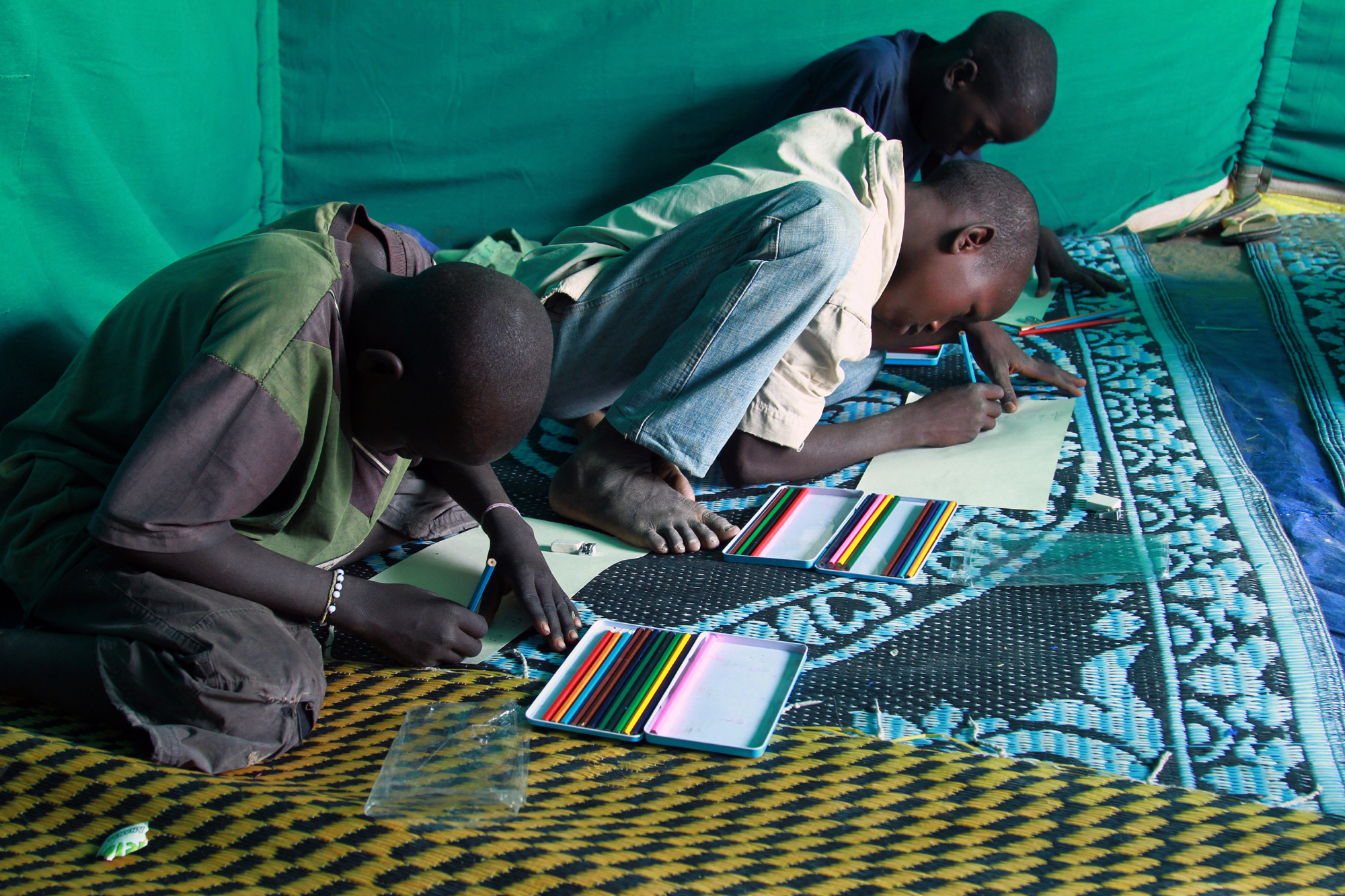
[SLIDESHOW=40024]NASHVILLE (BP) — One year after Boko Haram kidnapped 276 schoolgirls from Chibok, Nigeria, more than 800,000 children remain displaced by the Islamic militant group’s onslaught in Nigeria and neighboring countries, UNICEF reported April 13.
The number of displaced children — among 1.5 million people forced to flee their homes in the region — has more than doubled within the past year in northeast Nigeria, Cameroon, Niger and Chad, UNICEF stated in a report titled “Missing Childhoods: The impact of armed conflict on children in Nigeria and beyond.”
The 1.5 million refugees and internally displaced persons in the region are among an overall 3.5 million-plus people who face months of food shortages from the insurgency, according to news reports of projections by the Famine Early Warning Systems Network in March.
Manuel Fontaine, UNICEF regional director for West and Central Africa, said the capture of the Chibok schoolgirls, 200 of whom remain missing, is “only one of endless tragedies being replicated on an epic scale across Nigeria and the region.”
“Scores of girls and boys have gone missing in Nigeria — abducted, recruited by armed groups, attacked, used as weapons, or forced to flee violence,” Fontaine said. Women and girls also have been targeted for “particularly horrific abuse, including sexual enslavement,” according to the UNICEF report.
Boko Haram, in targeting students and teachers, has damaged or destroyed 300 schools, killing at least 196 teachers and 314 schoolchildren through the end of 2014, UNICEF said, predicting the numbers would increase as Boko Haram violence continues.
The UNICEF report quotes Marzia Vigliaroni of Cooperazione Internazionale (COOPI), an Italian nongovernmental organization which manages a space in Diffa, Niger, for displaced children, with support from the U.N. agency.
“Some children are very shy. They won’t speak or participate in our activities; they need psycho-social support. We ask them to make drawings of their experience during the attack. They draw people with slit throats and people drowning in the river,” Vigliaroni said. “This shows us how deeply affected children are. We work with them individually; we try to help them forget the traumatizing events they have experienced and continue their lives like other children and forget what they had to live through.”
UNICEF’s report was among various papers on Boko Haram violence released on the one-year anniversary of the Chibok kidnapping, which was commemorated with special church services and vigils across Nigeria.
Boko Haram affiliated with ISIS, the self-proclaimed Mideast Islamic state, in early March and has worked to end Christianity in Nigeria.
Boko Haram has kidnapped at least 2,000 women and girls and killed at least 5,500 civilians since the start of 2014, Amnesty International said in a 90-page report titled, “‘Our job is to shoot, slaughter and kill’: Boko Haram’s reign of terror.” The report included findings from more than 200 witness accounts, including interviews with 28 abducted women and girls who escaped captivity, Amnesty International said.
Nigeria’s military reported successes against Boko Haram that allowed the country to hold largely peaceful democratic presidential elections March 28, placing Muslim candidate Muhammadu Buhari in office. He has pledged to continue efforts to defeat the militants and to secure the Chibok girls’ freedom, although he made no promises.
“We do not know if the Chibok girls can be rescued. Their whereabouts remain unknown. As much as I wish to, I cannot promise that we can find them,” Buhari told Reuters News today (April 14), saying his approach would differ from that of defeated President Goodluck Jonathan. “My government will do everything in its power to bring them home.”

















